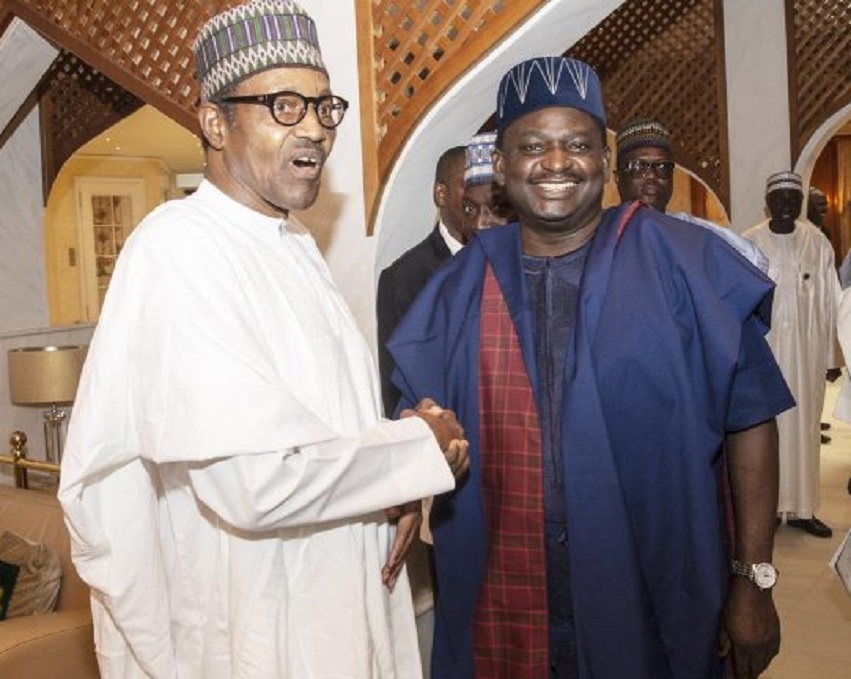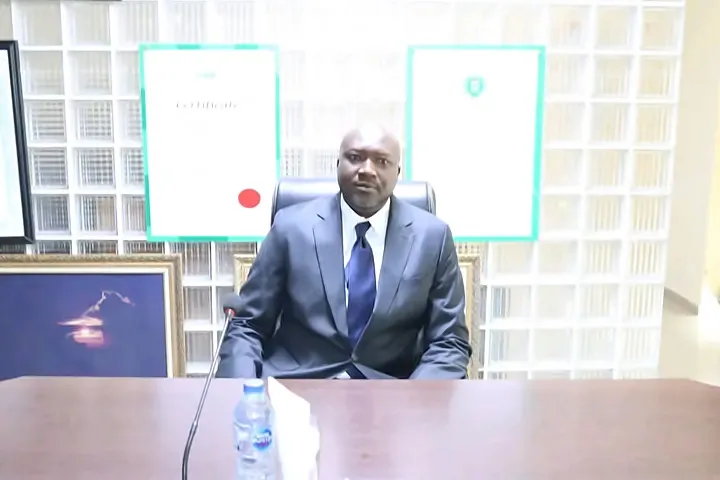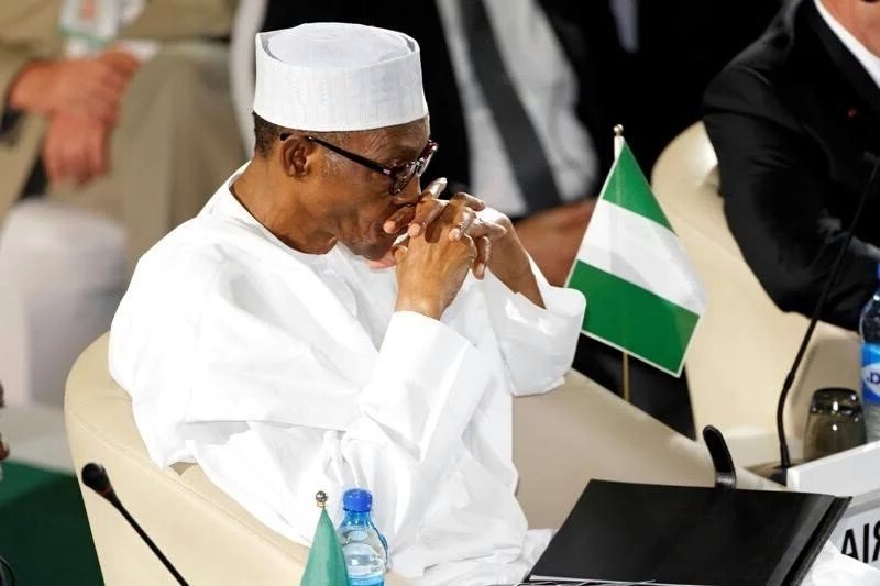General
Survey Shows Nigerians Don’t Trust Media, Government

By Aduragbemi Omiyale
Trust is one element some individuals and corporate organisations and even governments try to build because, without it, it will difficult to achieve believability.
When someone or an organisation cannot be trusted, there is trouble and for the government, it could spell doom as its policies would meet a brick wall, which could scare away investors and plunge the economy into crisis.
In Nigeria, the different administrations have struggled to build trust and this has left citizens to trust foreign organisations more than their government.
Are things getting better? The 2021 Edelman Trust Barometer Report seems to emphasise that no improvement has been made.
The survey showed that out of the four institutions of government, business, media and Non-Governmental Organisations (NGOs), Nigerians trust civil society organisations the most, with businesses coming second.
On the other hand, most Nigerians expressed distrust for the media and returned the lowest trust quotient in the world for government with 24 per cent.
Conversely, Nigerians overwhelmingly placed the highest trust in their employers and in the process revealed their expectations for CEOs and business leaders to be more pro-active in speaking out on societal issues (92 per cent) and driving positive change (79 per cent) rather than wait for government.
At the virtual unveiling of the report by Edelman and its exclusive Nigerian affiliate, Chain Reactions Nigeria, in Lagos on Tuesday, February 23, 2021, Mr Laolu Akande, the media aide of Nigeria’s Vice President, Mr Yemi Osinbajo, explained that the distrust of government is a result of Nigerians’ natural cynicism and the testy historical relationship between government and citizens.
“Distrust in government is not peculiar to Nigeria. However, the government does have the responsibility to up its game in communication, to demonstrate responsibility and responsiveness,” Mr Akande said, citing the acclaimed National Social Intervention Programmes, and the COVID-19 Survival Fund as some evidence of the President Muhammadu Buhari administration’s unprecedented responsiveness to Nigerians.
During the presentation of the report by the CEO of Edelman Africa, Mr Jordan Rittenberry, at the event themed Pandemic’s Ongoing Impact on Trust, a foremost journalist, Mr Reuben Abati, while speaking on the finding that Nigerians’ distrust the media, explained that the twin problems of ownership and unfavourable conditions of service combine to make newsmen themselves victims to various agendas.
“Absolute objectivity is utopian. How do you expect journalists to earn trust? It is really embarrassing these days with journalists denied salaries for maybe 10 or 12 months, while some blogs are becoming more authoritative than the mainstream media. And you find the mainstream media, even relying on blogs due to a lack of resources,” he submitted.
On NGO’s emergence as the most trusted institution, the Director, Women Advocates Research and Documentation Centre, Dr Abiola Akiyode-Afolabi, noted that “we have always been connected to the people as civil society organisations.
“And during the lockdown to curb the spread of COVID-19 last year, we mobilized against a number of issues and demanded accountability. Some organisations stood in place of government; in terms of palliatives, in terms of support. They went to areas the government couldn’t reach.”
Commenting on how institutions can further build trust, the Senior Director, Global Government Relations for Africa at Procter & Gamble, Temitope Iluyemi, identified inter-sectoral partnerships and communication.
“We believe in over-communicating. P&G adopted a two-way communication strategy, we held town halls and bottom-top meetings to provide credible information to our employees and take feedbacks.
“We also leveraged the use of data for our marketing strategies, and this translated into deeper connections with staff and customers.”
General
NIMASA Rallies Stakeholders’ to Develop National Action Plan

By Adedapo Adesanya
The Nigerian Maritime Administration and Safety Agency (NIMASA) has pledged its commitment to provide the regulatory leadership, technical coordination, and stakeholder engagement required to successfully develop and implement a robust National Action Plan on maritime decarbonization in Nigeria.
The Director General of the agency, Mr Dayo Mobereola, made this known during the National Stakeholders’ workshop on the development of a National Maritime Decarbonization Action Plan, further describing the workshop as a critical step in actualising the Federal Government’s blue economy and climate objectives.
Represented by the Executive Director, Operations, Mr Fatai Taiye Adeyemi, the NIMASA DG underscored the significance of the IMO GreenVoyage2050 Project, a technical cooperation initiative /designed to support developing countries in implementing the IMO GHG Strategy.
According to him, the National Action Plan being developed will reflect national realities, leverage existing capacities, address identified gaps, and align with broader economic and environmental priorities of the federal government.
Mr Mobereola stressed that “this transition is not merely about compliance with international obligations, it is about safeguarding our marine environment, protecting public health, strengthening the blue economy, and ensuring that our maritime industry remains competitive and future-ready”, the DG said.
Also speaking at the event was the Technical Manager of the IMO GreenVoyage2050 Project, Ms Astrid Dispert, who highlighted that the overarching objective of the initiative is to advance a coherent and globally aligned regulatory framework to accelerate maritime decarbonization.
She also emphasised that NIMASA plays a pivotal role in driving the project at the national level.
The IMO GreenVoyage2050 Project provides technical expertise and institutional support to assist countries in developing and implementing National Action Plans that promote sustainable shipping practices, encourage investment in clean technologies, and strengthen capacity for long-term emissions reduction.
Through this collaboration, the federal government is advancing deliberate steps towards maritime decarbonization, reinforcing its commitment to global climate goals and ensuring a cleaner, greener, and more sustainable future for the sector.
General
BPP Mandates Digital Submission for MDAs From March 1

By Adedapo Adesanya
The Bureau of Public Procurement (BPP) has directed all Ministries, Departments and Agencies (MDAs) to comply with its digital submission process effective March 1.
The directive was contained in a circular signed by the Director-General of the Bureau, Mr Adebowale Adedokun, noting that the move was part of the bureau’s commitment to digital transformation and paperless governance.
It explained that the transition followed an earlier circular of Aug. 4, 2025, which introduced electronic submission procedures.
According to the bureau, it has successfully moved from physical filings to a dedicated e-mail service for document submissions and is now advancing to a more robust and integrated system.
The circular announced the inauguration of the BPP Digital Submission Portal, a web-based platform designed to enable MDAs submit procurement-related documents directly to the Bureau.
It stated that the automated platform would streamline the submission process, enhance transparency and ensure accelerated tracking of procurement-related documents and petitions.
“With effect from March 1, all MDAs will be required to use the portal to submit requests for ‘No Objection’ Certificates, approvals for ‘No Objection’ for special procurements, clarifications and status updates on submissions,” the bureau said.
It added that the portal would be hosted on the Bureau’s official website and would become fully operational from the effective date.
The bureau warned that physical submissions or manual hand-deliveries would no longer be prioritised and would eventually be rejected following the full transition to the digital platform.
It urged accounting officers to brief their procurement departments and ICT units on the development to ensure seamless processing of procurement activities from March 1.
It further advised MDAs to contact the Bureau via its official email for information on the onboarding process and integration into the portal.
The bureau emphasised that full compliance by all MDAs was required to ensure a smooth transition and avoid delays in the implementation of the 2026 fiscal year procurement processes.
General
Senate Seeks Removal of CAC Boss Hussaini Magaji

By Adedapo Adesanya
The Senate has asked President Bola Tinubu to remove the Registrar General of the Corporate Affairs Commission (CAC), Mr Hussaini Ishaq Magaji, from office.
The Senate Committee on Finance, while passing a resolution in Abuja on Thursday, accused Mr Magaji, a Senior Advocate of Nigeria (SAN), of failing to honour the Senate’s invitations to account for the finances of his agency.
“He refused on so many occasions to honour our invitation to appear before this committee.
“We have issues with the reconciliation of the revenue of CAC.
“Each time we invite him, he gives us excuses,” the Chairman of the committee, Mr Sani Musa, said as the committee passed the resolution.
CAC was part of a group of agencies that the House of Representatives Public Accounts Committee (PAC) recommended zero allocation for the year 2026, for allegedly failing to account for public funds appropriated to them.
The committee, at an investigative hearing held two weeks ago, accused CAC and some other ministries, departments and agencies (MDAs) of shunning invitations to respond to audit queries contained in the Auditor-General for the Federation’s annual reports for 2020, 2021 and 2022.
The PAC chairman, Mr Bamidele Salam, stated that the National Assembly should not continue to appropriate public funds to institutions that disregard accountability mechanisms, saying this will create fiscal discipline and strengthen transparency across federal institutions and conform with extant financial regulations and the oversight powers of the parliament.
“Public funds are held in trust for the Nigerian people. Any agency that fails to account for previous allocations, refuses to submit audited accounts, or ignores legislative summons cannot, in good conscience, expect fresh budgetary provisions. Accountability is not optional; it is a constitutional obligation,” he said.
-

 Feature/OPED6 years ago
Feature/OPED6 years agoDavos was Different this year
-
Travel/Tourism10 years ago
Lagos Seals Western Lodge Hotel In Ikorodu
-

 Showbiz3 years ago
Showbiz3 years agoEstranged Lover Releases Videos of Empress Njamah Bathing
-

 Banking8 years ago
Banking8 years agoSort Codes of GTBank Branches in Nigeria
-

 Economy3 years ago
Economy3 years agoSubsidy Removal: CNG at N130 Per Litre Cheaper Than Petrol—IPMAN
-

 Banking3 years ago
Banking3 years agoSort Codes of UBA Branches in Nigeria
-

 Banking3 years ago
Banking3 years agoFirst Bank Announces Planned Downtime
-

 Sports3 years ago
Sports3 years agoHighest Paid Nigerian Footballer – How Much Do Nigerian Footballers Earn













